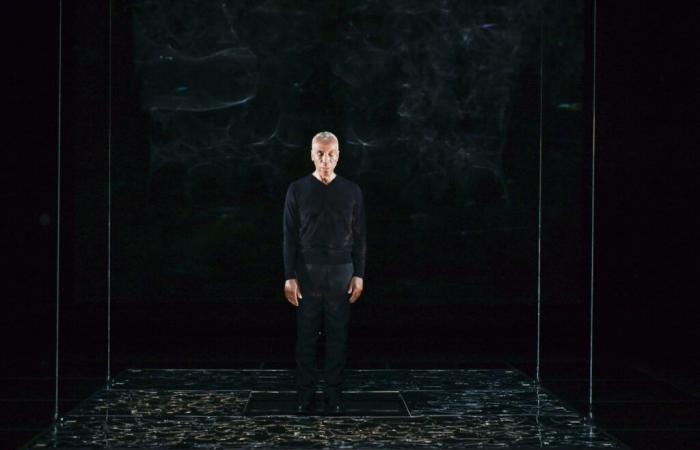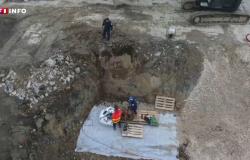In the theater, great loyalties are sometimes formed. The one that links the MC93 to Jean-René Lemoine is certainly one of them. In 2006, the author and actor created Facing the motherperforming alone on stage a monologue praised by the Bobigny audience.
Years later, Hortense Archambault, its current director, tends Facing the mother to the Flemish director Guy Cassiers, who took it over. And it is the same actor who takes up, at 65, his own role: that of a son who, in the depths of mourning, remembers his mother by reconnecting with the country where he was born.
Why reactivate, eighteen years later, this text from 2006? Certainly, there is something immutable in this threnody – the eternal structure of a filial relationship and the tragic dimension it involves. But it is also in the description of Haiti, this country that Lemoine, as he tells it, abandoned as a child to live on the continent and then in several parts of the world, that the play today finds its news.
Haiti, this country whose “no one speaks anymore”, says the text, no more yesterday than today, and in which the extreme violence perpetrated by gangs still remains unresolved.
The return reopens the wounds of the past
The actor remembers: a rehearsal of Richard IIIthe Shakespearean complaint – “O God, who made this blood, avenge this death! » – interrupted by the voice of the sister, on the telephone, who announces the terrible news: the mother, like many other victims of structural instability on the island, has been murdered.
The funeral takes place there, and the return reopens the wounds of the past. “I thought I would never come back to that country,” confides, on stage, the sixty-year-old with a youthful body, taken back to his childhood. Memories come back, streaked with omissions which become questions. What was it like leaving your country? Lemoine is an expatriate by birth, and his mother’s uprooting is precisely one that he, who was only 2 years old on the plane that brought them to the DRC, did not experience.
Using concentric touches, Jean-René Lemoine gradually approaches the heart of the character, without ever finishing capturing it. She was complicated, this woman he still saw; like this country that she abandoned in the sixties only to find it ravaged, twenty years later.
Mirror debris
Its hard and cold background is revealed in a second layer of the story, once the burial has passed; then it is the scene of the murder, left to an unbearable imagination, which torments the orphan and reopens the monologue, beyond the ultra-personal address, in the chaos of a country.
Inevitably, the portrait of the son is recomposed in the debris of the reflection held up by his mother. This idea involves the entire staging, very plastic, of Guy Cassiers, who then dedicates himself to unfolding the face of his interpreter in juxtaposed fragments and superprinted layers. The actor remains motionless, but around him the figuration – lights, projections, sounds – panics.
Mirror debris ends up coming down from the hangers, projecting their abstract reverberations onto the background. A spectacle is then born which absorbs the gaze, a sort of black hole whose eye would be the actor-narrator, magnificent in its hieraticism and stifled pain.
On tour in Amiens, Le Havre, Valenciennes, Orléans, Ris-Orangis (Essonne), Annecy, Valence.
Closer to those who create
Humanity always claimed the idea that culture is not a commoditythat it is a condition of political life and human emancipation.
Faced with liberal cultural policies, which weaken the public service of culture, the newspaper reports on the resistance of creators and all cultural personnel, but also on the solidarity of the public.
Unusual, daring and singular positions are the hallmark of the newspaper’s culture pages. Our journalists explore behind the scenes of the world of culture and the genesis of the works who make and shake up the news.
Help us defend an ambitious idea of culture!
I want to know more!






